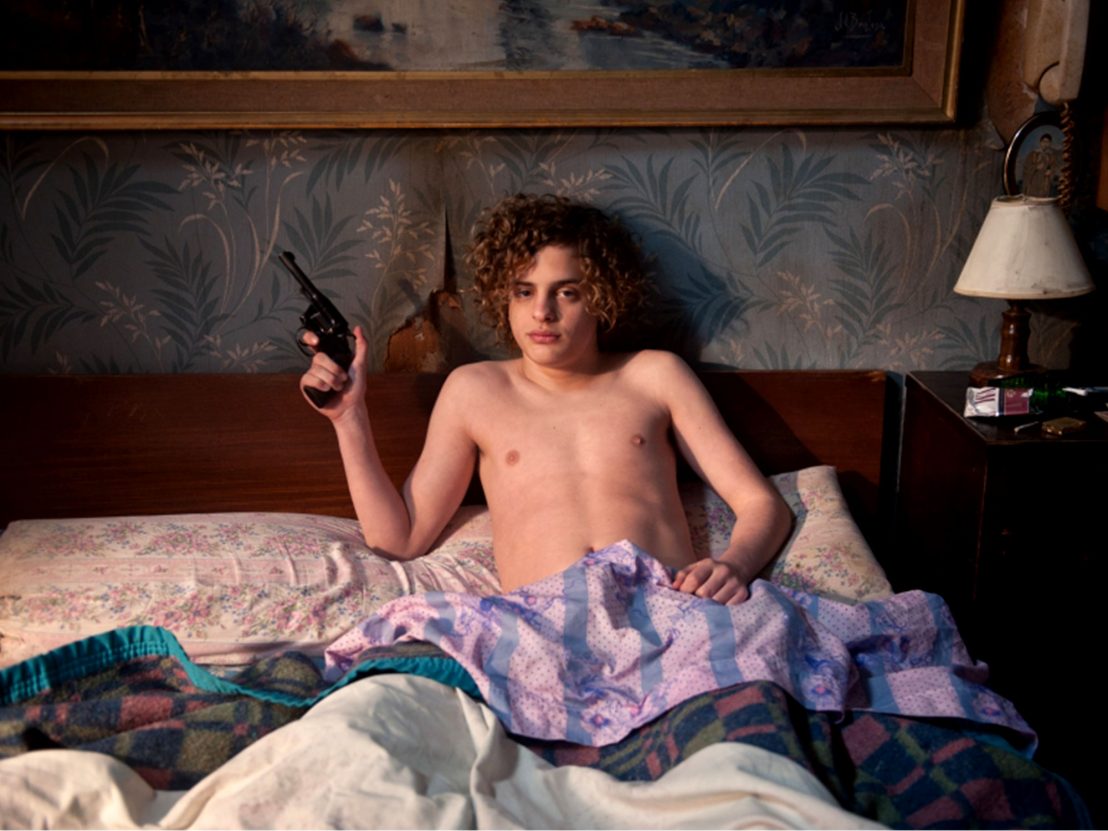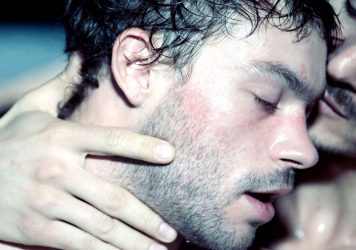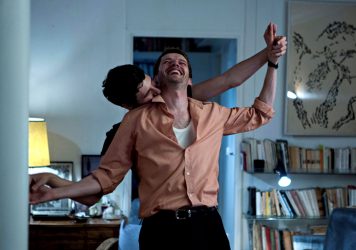
Luis Ortega’s portrait of a real-life Argentinian serial killer makes for a fascinating character study.
A disturbing blankness is at the heart of Luis Ortega’s fictionalised portrait of Carlos Robledo Puch, the real Argentinian serial killer who the press dubbed ‘The Angel of Death’ because of his cherubic appearance. The young man with the golden curls and the deadly aim was arrested in 1972, having just turned 20, with 11 homicides and over 40 thefts to his name.
Ortega’s portrait makes no attempt to condemn or even understand his subject’s motivation. Aided by lead actor Lorenzo Ferro who slides into the part with serene sociopathy, he instead depicts a life less ordinary, leaning into a ghoulish sense of humour.
Period detail is foremost with the Buenos Aires of 1971 and ’72 looking sunnily at odds with the criminal violence brewing. Carlos saunters up a path to a large house. The sun is out and he is wearing double denim and a thick yellow top. He tells us in voiceover that he doesn’t understand why people don’t want to be free. He was born a thief. This is the extent of L’Ange’s psychological profiling and now we’re into the action.
Carlos breaks into the house, but rather than desperately ransacking it, he heads to the lounge, selects a record and dances with tidy footwork to Spanish disco. Taking relish from criminal enterprise is a recurring motif of this characterisation. Later, when he and smoulderingly handsome buddy-partner Ramon (Chino Darín) break into a jewellery shop, he berates Ramon for being too hasty and not enjoying the moment. “You’re alive!” he exclaims, at which Ramon proceeds to bag the swag with comical slowness. Likewise, when Ramon smashes a barman for calling him a “fag” Carlos whoops for joy, coming fully alive wherever the social contract is abandoned and wildness reigns.
The friendship of Ramon and Carlos is ignited through a courtship of sensual violence at the reform school they attend. Carlos uses a blowtorch on the back of Ramon’s neck, Ramon strikes back and a union welded by commitment to anti-social urges is born. There is something else at play too. “You look like Marilyn Monroe,” says Ramon as the pair gaze into the jewellery shop mirror drinking in how Carlos looks in huge diamond earrings. Subjects are not so much explored as delicately presented, so this matter of homosexuality is simply a frisson in the mix of a bigger slice of life.
The murders themselves are framed as instinctive reactions by Carlos whenever a person stumbles on a scene of his robbery. He hears a noise, his arm flies up, a bullet is loosed, a person lies dead or bleeding. Ortega’s camera always goes to Ferro’s face for a reaction after a shot is fired. This face always conveys a blend of surprise and elation. Then he moves on, continuing unhurried and unpanicked to steal what he came to steal.
L’Ange is woven together by different narrative threads that are all given equal weight whether they are everyday, like dating, or terrible, like killing. Carlos is shown as coming from a normal family and is more or less adopted by Ramon and his crime family. A matter-of-fact tone created by Ortega’s refusal to dramatise any event. Left out are the more viscerally terrible crimes. The real Carlos shot at a baby and the real Ramon (real name Jorge Antonio Ibañez) raped a 16-year-old girl.
Reality-inspired-fiction is under no obligation to be faithful to its source, and often doing so leads to stifled works of art. In his interpretation of the story of The Angel of Death, Ortega has created his own vision of Oliver Stone’s Natural Born Killers, a deathly irreverent, scandalously amusing chronicle of an irredeemable person who is still banged up in jail, holding the record of longest serving Argentine prisoner at 46 years and counting.
L’Ange is an extraordinary showcase for Lorenzo Ferro who channels a calculating intelligence within his breezy golden boy facade. Every line of dialogue scans as a deliberate advance of his will, and yet he has the magnetism of a person contentedly living their dream. His performance holds on to the mystery of why even though he is physically present in nearly every scene. Ferro looks uncannily like his subject, and is a compelling, eerie avatar for the idea that you just can’t know who a person truly is.
Published 12 May 2018

By Ella Kemp
This passionate debut from Camille Vidal-Naquet boldly challenges our perceptions of male sex workers.

This eloquent and expressive gay romance from Christophe Honoré is one of the director’s finest achievements.

Embrace of the Serpent director Ciro Guerra returns with a full-bore narco saga set in rural Colombia.